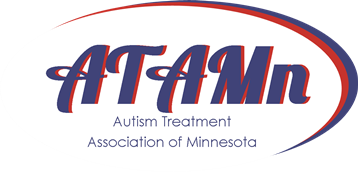401 Groveland Avenue, Minneapolis, MN 55403 ph: 612-871-1800 www.autismrecoveryfoundation.org
May 28, 2014
To: Anne Harrington, Autism Coordinator, Minnesota Department of Human Services
Re: Comments on Proposed 1915i Autism Early Intervention Developmental and Behavioral Intervention Benefit
Dear Ms. Harrington:
The Autism Recovery Foundation is a private nonprofit volunteer organization created to promote effective early intervention for children with autism. The Foundation salutes the efforts of legislators, the governor, and DHS staff that promote effective early intervention and supportive services to children on the spectrum and their families. With the recent passage of enabling legislation, Minnesota has an opportunity to make great strides towards access to effective services that will help meet the challenge posed by the alarming increase in the prevalence of autism.
In a meeting earlier this year we presented recommendations for Guiding Principles that could be a template for evaluating the autism benefit in Minnesota. Those principles include:
Early identification, timely access to treatment, parental involvement, treatment guided by medical necessity, a reduction of unnecessary overhead and red tape, the development of a qualified workforce, and an ongoing system of services and supports. We also strongly support building a quality improvement system that evaluates treatment effectiveness, tracks outcomes, and provides for ongoing learning. In our view, any proposal to establish an autism benefit must be viewed in relation to these guiding principles.
Although research shows that the symptoms of ASD are often manifest by age two, in Minnesota the average age for diagnosis of ASD is age five. This gap is troubling because we know that early intervention significantly improves functioning. These delays are costly in terms of money and in family stress. Across different intervention philosophies and treatment modalities, there is broad agreement that the earlier the intervention the better. So Minnesota’s proposed early intervention benefit must be evaluated by answering these questions: Does it really promote early intervention and timely access? Does it remove barriers to effective treatment?
Unfortunately, in our view, the proposal to require a comprehensive multi-disciplinary evaluation (CMDE) prior to the start of services creates a bottleneck and a barrier to timely access and early intervention. We know that due to a lack of qualified providers and the growing number of children on the spectrum that wait times to access a professional evaluation can be months, if not years. In the meantime valuable time is wasted, and children and families struggle. We do support the concept of a comprehensive multi-disciplinary evaluation and understand the value of bringing forth information and assessments from a variety of disciplines. Our issue is not with the concept, but with the timing.
As an alternative we propose the development of an intensive initial assessment program. The concept is that if one qualified professional, from those disciplines currently allowed under state law, gives a preliminary diagnosis of ASD, then the child would be referred to a program of intensive early intervention for the purposes of a diagnostic assessment. The program would provide both intervention and a structured diagnostic program that includes standardized assessments, a developmental evaluation, and behavioral observation while collecting data on the child’s response to initial interventions. During this intensive initial assessment information could be gathered to complete the CMDE. The CMDE would be used to provide the independent evaluation and protect against conflicts of interest. An independent medical review agent who has competencies in evaluating autism could provide another safeguard by reviewing diagnostic testing results.
Another issue that has been a point of contention is the question of the treatment of children with a co-occurring intellectual disability and autism. The proposed benefit acknowledges that intellectual disability and autism frequently co-occur. The proposal also states that the evaluation must assess whether or not the child has the “developmental capacity” to benefit from ASD treatment. In our view it is difficult to assess a young child’s “developmental capacity” outside of a response to an intervention model. Establishing an intensive initial assessment program followed by a CMDE would provide a more accurate assessment of a child’s developmental capacity. However, we believe that the data clearly show that whether or not a child has a co-morbid intellectual disability, if the child also has autism, treating the autism would improve a child’s functioning, which should be the goal of any treatment. In most cases, children with severe autism are considered ‘untestable’ on standardized measures of intellectual disability prior to intervention, and because severe autism most often brings a severe intellectual impairment, and because there is no data showing differential response to treatment by level of initial developmental disability, there is no defensible reason to use intellectual disability as a rule-out for access to services.
Finally, we are concerned about the potential limitations of the 1915i option. While it provides for the development and enhancement needed of home and community based supports, it may not be the best platform to provide timely and appropriate early intervention and treatment. Recent legislation gives the commissioner permission to pursue a state plan amendment through EPSDT. We understand there is reservation about pursuing the EPSDT option because it would open the door to services beyond the disability category of autism. If that is the case, then DHS should directly analyze the cost of opening that door and weigh it against the potential ongoing cost of untreated autism. At this point we would like to know whether or not the commissioner intends to exercise this option.
Again, thank you for the opportunity to provide comments on this proposal to meet the challenge of this vital and growing need.
Sincerely,
Randall W. Bachman
Chairperson



